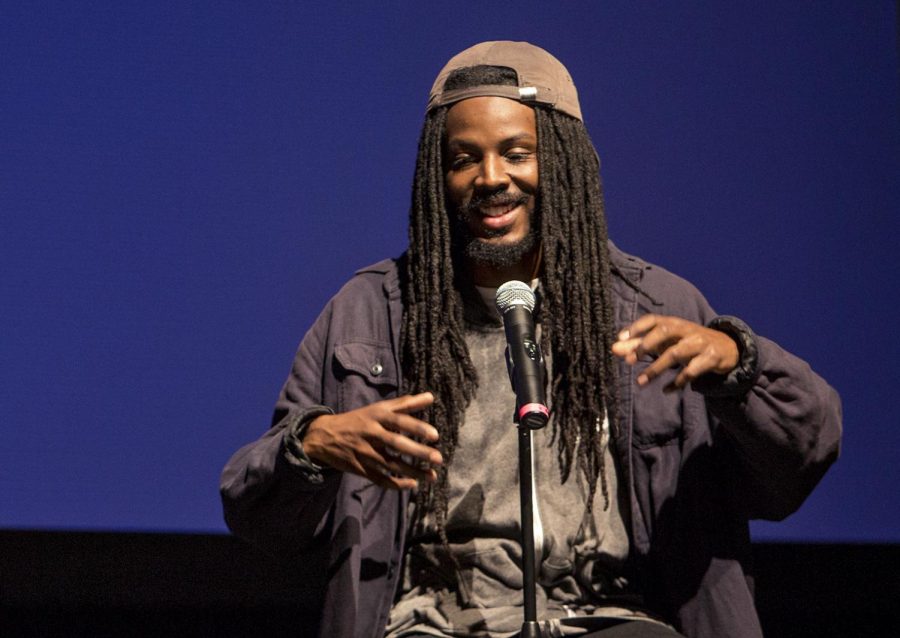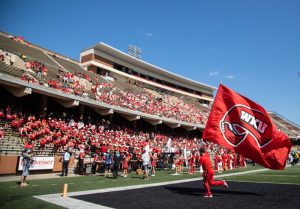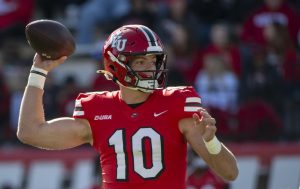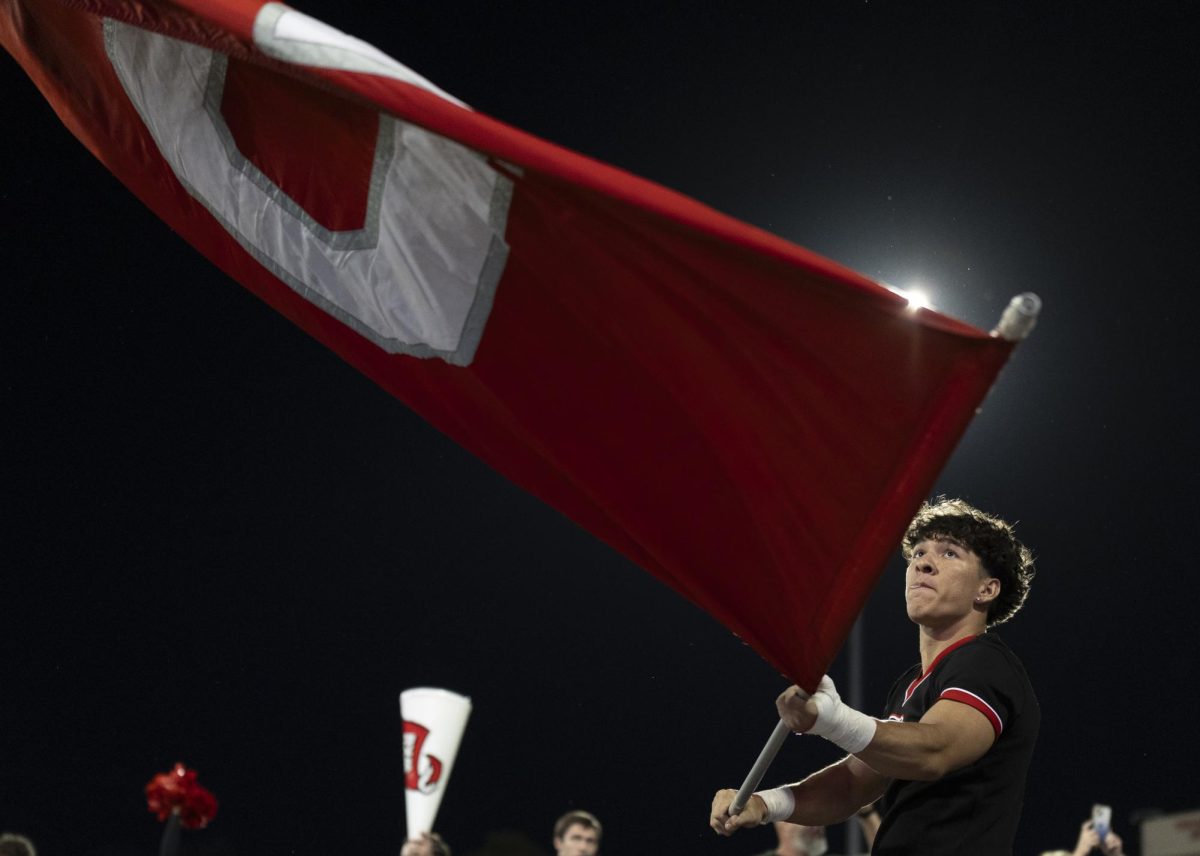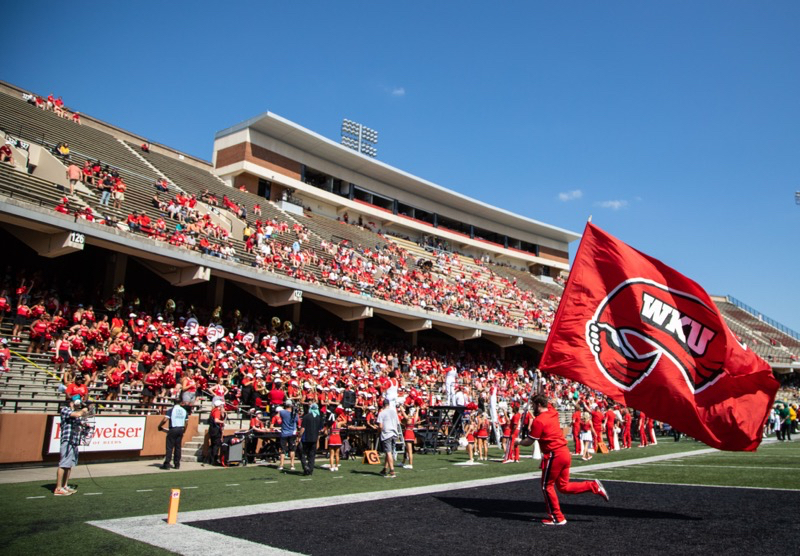Artist group aims to unify minorities
November 9, 2017
Blaq Art Nouveau, a WKU-based group of student artists aimed at unifying minorities through the expression of artistic abilities, hosted poet, playwright and activist Donté Clark at its Poetry Exchange and Discussion event Tuesday in DSU.
Clark, from Richmond, California, has been traveling the United States discussing social justice issues and sharing Romeo Is Bleeding, a 2015 film which explores years of violent conflict between North and Central Richmond neighborhoods. The documentary stars Clark and follows him through writing and performing his first play, Té’s Harmony, a Richmond-focused adaptation of Shakespeare’s Romeo and Juliet.
Romeo Is Bleeding was featured at Bowling Green’s Capitol Arts Center Tuesday evening. The documentary is available on Netflix as well.
Upon discovering that Clark would be in Bowling Green, Louisville senior, Phi Beta Sigma member, and Blaq Art Nouveau president, Kijana “KJ” Beauchamp, invited Clark to visit and speak at Blaq Art Nouveau’s Poetry Exchange and Discussion.
“I knew he was a good person at heart, and I knew he would bring a wealth of knowledge to Western,” Beauchamp said. “Just for the community itself, it’s really beneficial to hear different perspectives.”
Beauchamp cites a variety of perspectives as key to change and believes such variety is foundational to Blaq Art Nouveau.
“We’re just focused on embracing everyone and just facilitating that in an artistic manner, whether that be poetry or dance, writing, playwriting, physical art, visible art,” Beauchamp said.
Blaq Art Nouveau’s focus toward artistry guided the event, which opened with its poetry exchange, wherein students were given the opportunity to share personal poems and pieces.
Beauchamp commenced the exchange by reciting a poem he’d recently written, titled “My Identity,” which detailed the significance of his name and how its meaning helped him to eventually better understand himself. A few students followed with their poems, most of which examined social issues like present-day discrimination, same-race violence and stereotypes.
Next, the event became an open and informal discussion of numerous societal and educational issues. Students remarked upon individual responsibility in broadening one’s knowledge, the potential of a revised education system, problems associated with misunderstanding the origin and meaning of certain words and how individuals are defined not by their race but by their words and actions.
As opposed to leading or prompting discussion, Clark sat amongst the audience and listened. He listened and smiled and wrote in his personal journal, only speaking when asked.
When he did speak, he remained seated and gestured, moving his hands and expressing his ideas as clearly and engagingly as possible.
He first mentioned how much he enjoyed listening to other curious and intelligent minds, then noted topics are collective issues and warrant discussion among a collective of people.
Clark closed out the event by saying that because the same problems are being discussed everywhere else he’s traveled, he believes we all have a part to play in solving them.
As for Clark’s journey with activism, despite financial and environmental difficulties throughout his adolescence, he attributes most of his success to writing.
“I knew that writing was going to be my ticket,” Clark said. “Writing may be the only thing that saved my life.”
Through his writing and work, Clark wants to make known that social issues are “not about your city or your county,” but that they exist in the same way everywhere else. With a collective love and healing process, a collective solution is foreseeable.
Beauchamp believes WKU could benefit from more speakers of Clark’s experience and hopes similar events take place in the future.
“I think it is needed on this campus,” Beauchamp said.
Reporter Griffin Fletcher can be reached at 270-745-2655 and griffin.fletcher398@topper.wku.edu.

